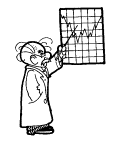 ETFs are open-ended, registered investment companies organized under the Investment Company Act of 1940 that have
been granted certain exemptive relief from the SEC to allow secondary market trading.
ETFs are easy to trade, highly liquid, more tax-efficient than traditional mutual funds and can be bought with a minimal investment. Trading ETFs can be a successful strategy in both bull and bear markets. They are a great way to gain low cost exposure to specific sectors, industry groups or global markets.
ETFs are open-ended, registered investment companies organized under the Investment Company Act of 1940 that have
been granted certain exemptive relief from the SEC to allow secondary market trading.
ETFs are easy to trade, highly liquid, more tax-efficient than traditional mutual funds and can be bought with a minimal investment. Trading ETFs can be a successful strategy in both bull and bear markets. They are a great way to gain low cost exposure to specific sectors, industry groups or global markets.
What Are ETFs And How Do They Work
ETFs are trusts, which contain a basket of stocks that mirror the performance of recognized stock and bond indexes.
Unlike mutual funds, ETFs can be bought and sold at any point during the trading day providing liquidity not found
in open-end mutual funds. The investor can also gain broad market exposure without costing an arm and a leg.
Arguably, ETFs have become the fastest growing investment product on the financial landscape.
Advantages Of Exchange Traded Funds
- Tax efficiency: Unlike mutual funds, there are no capital gain distributions with ETFs. Your gain or loss is realized only when you close an open position.
- Diversification: Each ETF typically has 20 - 150 stocks weighted by market capitalization.
- Transparency: Unlike mutual funds, ETFs are not actively managed. The stocks in the portfolio remain in the trust until they are replaced in the corresponding index.
- Scheduled dividends: ETFs that included stocks that pay dividends distribute those dividends on a quarterly basis.
- Intra-day buying and selling flexibility:
- Inexpensive transaction fees.
- ETFs are marginable and can be shorted on a down tick.
- Low management fees: Average expense ratio of a mutual fund might be as high as 1.5% versus .25% for an ETF.
- Can be traded using stop and limit orders.
The Market Edge Stock Watch module has three lists of ETFs which include all of the equity based funds. The lists are grouped as Sector, Domestic or International ETFs. By combining the power of the Market Edge 'Opinions' with the diversification offered by ETFs, a potent investment program can be structured.
 The Right Stock At The Right Time®
The Right Stock At The Right Time® The Right Stock At The Right Time®
The Right Stock At The Right Time®